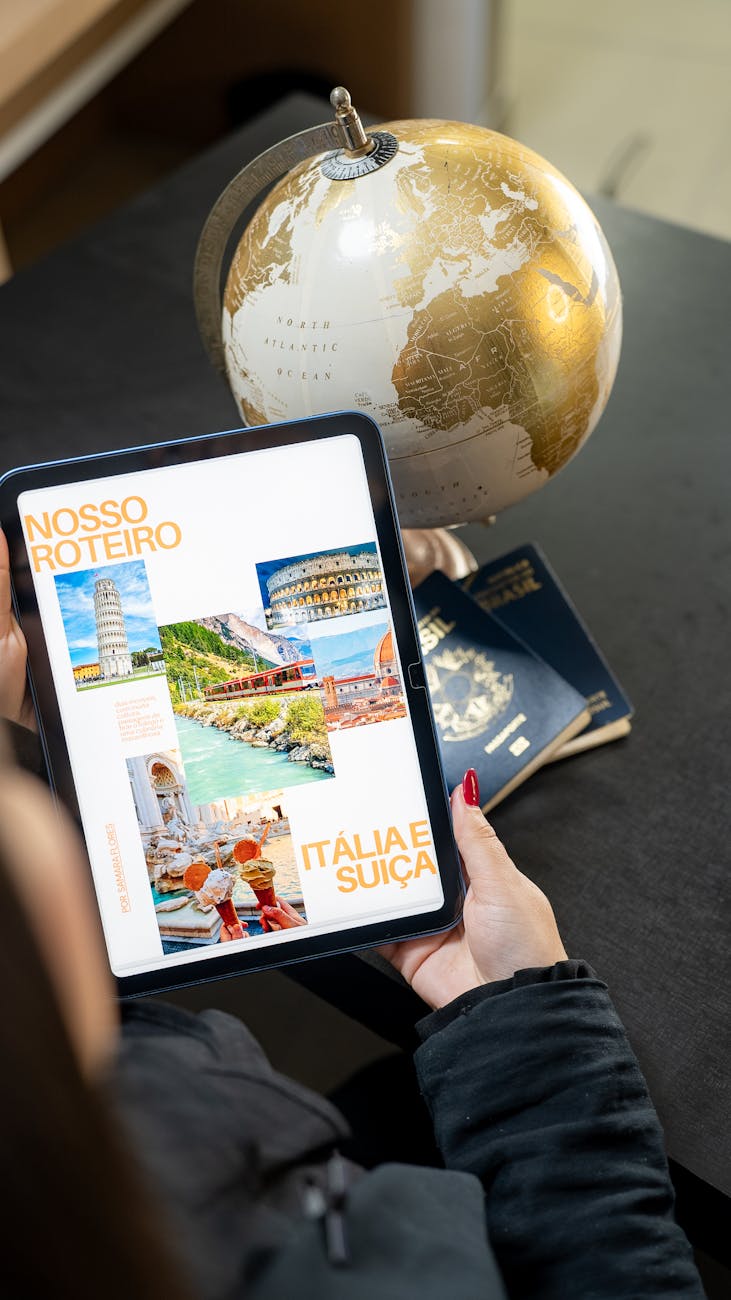Travel Agency License: Must‑Have Essential Guide
Travel Agency License is the cornerstone for anyone looking to launch or operate a travel business in the UAE. Whether you are a seasoned entrepreneur or a fresh entrant, understanding the licensing framework, required documentation, and ongoing compliance obligations is essential to establish a legitimate, profitable venture that meets all regulatory standards.
—
Why a Travel Agency License Matters in the UAE
Legal Protection and Credibility
– Compliance with UAE law – The UAE’s Tourism Development Law, enacted in 2016, stipulates that all travel agencies must hold a valid license issued by the Department of Economic Development (DED) or the designated tourism authority in each emirate.
– Consumer trust – A licensed agency is registered with the UAE Ministry of Economy, enabling transparent business registration, which reassures clients and partners.
– Dispute resolution – Licensed agencies are members of the UAE’s dispute resolution mechanisms for consumer grievances, ensuring fair treatment of travelers.
Business Growth Prospects
– Access to global travel networks – Licensed agencies can partner with international tour operators, airlines, and hotel chains through recognized travel associations such as the Arab Travel Association (ARATA) and the International Air Transport Association (IATA).
– Government‑sponsored tourism initiatives – Dubai’s Tourism Development Fund and Abu Dhabi’s Tourism Development Authority provide grants and marketing support to licensed travel companies that align with national tourism strategies.
—
Types of Travel Agency Licences
| Type | Primary Use | Issuing Authority | Key Features |
|——|————-|——————-|————–|
| Full‑Scale Agency License | Domestic & international tour bookings, visa facilitation, event planning | DED (City‑wide) | Covers all travel services; requires higher capital and robust compliance |
| Niche Agency License | Specialized services (e.g., adventure travel, wellness retreats) | DED (City‑wide) | Tailored to specific market segments; may have lower capital requirements |
| Online‑Only Travel Agency License | Digital bookings, virtual tours | DED (Digital Commerce Unit) | Focus on e‑commerce platforms; mandates secure payment gateways |
> Tip: In Dubai, the DED’s Digital Commerce Unit has launched a specific sub‑category for online travel agencies, reflecting the shift to digital booking platforms.
—
Government Bodies and Regulations
| Agency | Role | Contact |
|——–|——|———|
| Dubai Department of Economic Development (DED) | Regulates business activities, issues Travel Agency Licences | https://ded.ae |
| Abu Dhabi Department of Economic Development (ADDED) | Issues licences, oversees tourism clauses | https://ded.abudhabi.ae |
| Sharjah Tourism Development Authority (STDA) | Requires specialized travel licences for active office locations | https://tcs.ae |
| Dubai Tourism & Commerce Marketing (DTCM) | Provides guidelines for marketing and compliance with tourism standards | https://dcm.gov.ae |
| UAE Ministry of Economy (MOE) | Manages national business registration database | https://moi.gov.ae |
Key regulations to note:
– Tourism Development Law (Federal Law No. 25 of 2016) – Mandates all travel agencies to register with the MOE and obtain city‑level licences.
– Consumer Protection Law (Federal Law No. 1 of 2009) – Requires travel agencies to provide clear contracts, refund policies, and adhere to fair marketing practices.
– Financial Regulations – Travel agencies must comply with Anti‑Money Laundering (AML) policies under the UAE Central Bank, especially when handling large transaction volumes.
—
Step‑by‑Step Application Process
The application process varies slightly between emirates. Below we outline the general flow in Dubai, one of the most popular hubs for tourism businesses.
1. Choose a Business Structure
| Structure | Capital Requirement | Typical Use |
|———–|———————|————-|
| Limited Liability Company (LLC) | AED 300,000 minimum | Most common; allows local partnership |
| Free Zone Company | Depends on free zone | Full foreign ownership, tax incentives |
| Professional Service Company | AED 50,000 minimum | For sole traders offering travel advisory services |
> Recommendation: An LLC is ideal for most travel agencies seeking flat‑rate licences and access to government‑backed discounts.
2. Reserve a Trade Name
– National Naming Rules – Ensure your trade name is unique and adheres to MOE’s naming guidelines (no offensive or politically sensitive terms).
– Online reservation – Submit via DED’s business portal; a name reservation fee of AED 300 is payable.
3. Draft and Authenticate the Memorandum of Association (MOA)
– Required to outline ownership, capital distribution, and office address.
– Must be notarized by the Dubai Courts and certified by the Authority for the Emirates Court of Accounts.
4. Submit Documentation Pack
| Document | Who Provides | Notes |
|———-|————–|——-|
| Commercial Licence Application Form | Applicant | Completed online via DED portal |
| Passport copies of all owners | Owners | Must be in English or Arabic |
| Residence Visa of the UAE‑resident partner | Partner | Proof of legal residence |
| Family Card / Birth Certificates | Owners | If marriage or dependent guardianship involved |
| Lease Agreement or Proof of Office | Applicant | Must be within licensed zone or free zone |
| Board Resolution (for LLC) | Company | Approved by local partner |
| Proof of Capital Deposit | Company | Bank statement of AED 300,000 |
> Tip: The DED portal provides a checklist wizard that auto‑validates each uploaded file.
5. Obtain Mandatory Approvals
– Urban Development Authority – Clearance for building usage.
– Dubai Airport Authority – If the agency will facilitate airport transfers or tours.
– Dubai Police – For safety compliance certificates.
6. Pay Licence Fees & Issuance
– Initial licence fee – AED 3,000 for a travel agency (Dubai).
– Annual renewal fee – AED 1,500, payable each year on the anniversary of the licence issuance.
– Additional services – Vision‑based QR code compliance (AED 500), marketing sign‑board approval (customised).
7. Register with the Ministry of Economy
– Once DED licence is granted, a business licence number is automatically created in the MOE database.
– This registration ensures your business appears in the national directory and is eligible for tax treaty benefits.
—
Essential Documentation Checklist
– Passports & visas of all shareholders
– UAE resident partner’s Nationality Card or passport
– Trade name reservation confirmation
– Commercial lease agreement or ownership proof
– MOA and board resolutions
– Commercial liability insurance (minimum AED 100,000)
– Anti‑Money‑Laundering (AML) compliance certificate
– Company banking reference letter
– Environmental compliance (if applicable)
> Resources: The DED’s “Business Setup Guide” PDF contains a detailed checklist that will expedite your application.
—
Fees and Timelines
| Phase | Cost | Timeline |
|——-|——|———-|
| Trade name reservation | AED 300 | 1–2 business days |
| Notarisation of MOA | AED 2,000 | 3–5 business days |
| DED applicant fee | AED 3,000 | 1–2 business days |
| Representative (if any) appointment fee | AED 2,500 | 1 week |
| Annual renewal | AED 1,500 | 30 days before expiry |
| Renewal deposit (free zone) | Variable | 1–2 weeks |
Note: Free‑zone companies often have higher initial fees but offer tax incentives and 100 % foreign ownership.
—
Compliance and Renewal
Annual Obligations
1. Renew Licence – Submit renewal application and pay AED 1,500 before the expiry date.
2. Tax Registration – If turnover exceeds AED 375,000, register for VAT under Federal Tax Authority guidelines.
3. Financial Audits – Annual balance sheets must be audited by a licensed firm if the company’s total assets exceed AED 5 million.
4. Insurance Refresh – Renew commercial liability and professional indemnity insurance.
5. Consumer Dispute Logs – Maintain an online record of all complaints and resolutions, accessible to the DED.
Professional Insurance
– Commercial General Liability – Covers third‑party claims for bodily injury or property damage.
– Professional Indemnity – Protects against claims arising from negligent advice or misrepresentation.
– Cyber‑Risk Insurance – Essential for agencies processing personal data and online payments.
> The Dubai Insurance Authority publishes a list of approved insurers for travel businesses; firms must assign a minimum coverage of AED 1 million for general liability.
—
Common Pitfalls and How to Avoid Them
– Incomplete Documentation – Missing passport copies or invalid lease agreements delay approval by weeks.
– Non‑compliance with Anti‑Money‑Laundering Laws – Failing to verify customer identity can result in licence revocation.
– Over‑seeding of Capital – Sub‑minimum capital declarations lead to licence denial or retroactive penalties.
– Neglecting Annual Renewal – Licence expiration triggers the DED’s automatic cancellation, requiring re‑establishment.
– Ignoring Digital Commerce Rules – Online agencies missing secure payment processing certification will face legal scrutiny.
Pre‑emptive Measures:
– Use the DED’s “Pre‑Application Check” portal to verify all documents.
– Engage a licensed business setup consultant to handle legal and regulatory paperwork.
– Set up automated reminders for licence renewal and tax filings.
—
Sector Trends and Opportunities
Digital Transformation
– Mobile‑First Booking Platforms – 70% of UAE residents use mobile apps for travel in 2023 (Dubai Statistics Center).
– AI‑Driven Personalisation – AI chatbots provide 24/7 customer service, reducing support costs by 30%.
Sustainable Tourism
– Green Certifications – Increasing demand for eco‑friendly tour packages (UAE Sustainable Development Goals initiative).
– Local Heritage Tours – Packages featuring UAE’s cultural heritage sites attract higher tourist spend.
Post‑COVID Landscape
– Health‑Secure Travel – Agencies must now provide health verification certificates, proof of vaccination, and emergency medical covers.
– Flexible Cancellation Policies – 80% of booking platforms now offer full refund options under “flex‑travel” models (UAE Ministry of Health).
—
Getting Started Immediately
1. Define Your Niche – Pick a travel segment you are passionate about: family, adventure, wellness, or corporate.
2. Secure Funding – Calculate the required capital, including set‑up fees, office lease, and insurance.
3. Hire a Registration Consultant – Many professional service providers (e.g., andams, Alfa, Visya) offer end‑to‑end support.
4. Build Your Brand – Register a domain, develop a website that meets DTCM branding guidelines, and establish social media profiles.
5. Network with Industry Bodies – Join ARATA, IATA, and Dubai Tourism & Commerce Marketing for networking and industry updates.
6. Launch Gradually – Start with a manageable portfolio of destinations before scaling operations.
—
Conclusion
Obtaining a Travel Agency License** in the UAE is more than a bureaucratic formality – it is a gateway to regulatory compliance, consumer trust, and market expansion. By meticulously preparing your documentation, understanding the legal landscape, and staying abreast of industry trends, you position your agency to thrive in the UAE’s dynamic tourism sector. Whether you are just starting out or looking to expand an existing operation, the steps outlined above provide a clear, actionable path to a licensed, prosperous travel business in the UAE.









